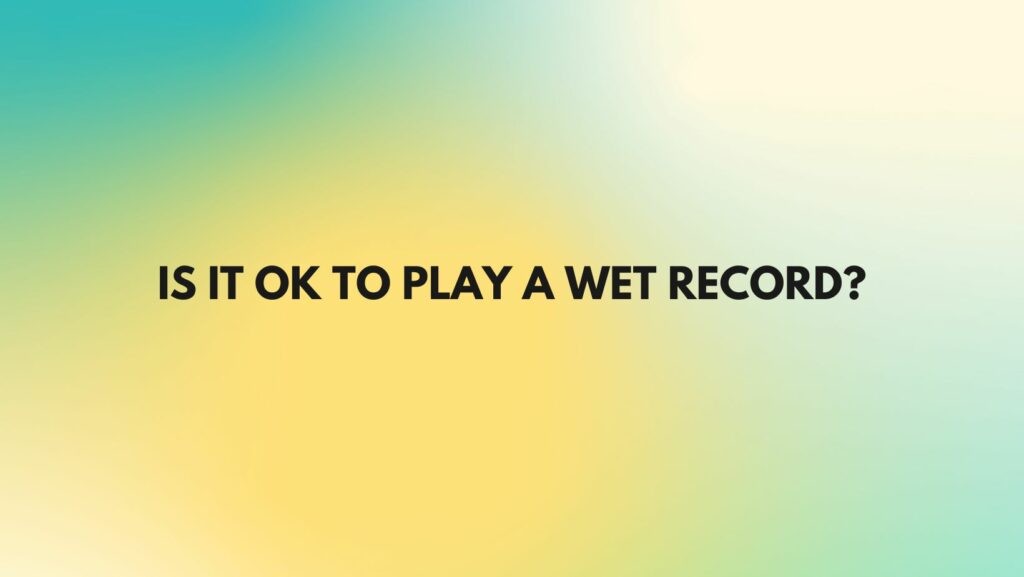Vinyl records, revered for their warmth and authenticity, have experienced a resurgence in popularity among music enthusiasts. However, encountering a wet record can pose a dilemma for collectors and listeners alike. In this article, we explore the implications of playing wet records, weighing the risks and potential consequences for both the record and the playback equipment.
The Temptation of Playback: The allure of vinyl lies in its tangible connection to the music, inviting listeners to engage with the medium on a tactile level. When faced with a wet record, the instinct to salvage the listening experience may prompt individuals to consider playing the record despite its moisture-laden state. However, this impulse must be tempered with caution, as playing a wet record can exacerbate existing damage and compromise playback quality.
Understanding the Risks: Playing a wet record entails several risks that can affect both the record itself and the playback equipment. Wet records, particularly those exposed to water or high humidity, may exhibit warping, mold growth, and surface degradation. Warping occurs when moisture causes the vinyl to expand unevenly, resulting in distortion that can impede the stylus’s ability to track the grooves accurately. Mold growth, fueled by damp conditions, not only detracts from the record’s aesthetic appeal but can also pose health risks to individuals handling the record. Surface degradation, manifested as cloudiness or discoloration, diminishes the record’s sonic fidelity and visual allure.
Mitigating Damage: In the event of a wet record, exercising restraint and prioritizing preservation are paramount. Avoid the temptation to play a wet record, as doing so can exacerbate damage and potentially harm the playback equipment. Instead, focus on mitigating the moisture and allowing the record to dry thoroughly before attempting playback.
To dry a wet record, gently blot the surface with a soft, absorbent cloth to remove excess moisture. Avoid applying excessive pressure or rubbing the surface, as this can cause further damage. Allow the record to air-dry on a flat, non-abrasive surface, ensuring adequate ventilation to promote evaporation. Avoid exposing the record to direct heat or sunlight, as these can accelerate warping and surface degradation.
Prevention as the Best Practice: Prevention remains the cornerstone of safeguarding vinyl records against moisture-related woes. Store records in a controlled environment with stable humidity levels and invest in high-quality storage solutions to minimize exposure to water and humidity. Regularly inspect records for signs of damage and address any issues promptly to prevent further deterioration.
Conclusion: While the temptation to play a wet record may be strong, exercising caution and prioritizing preservation are essential to safeguarding vinyl’s integrity. By understanding the risks associated with playing wet records and adopting proactive preservation strategies, collectors and enthusiasts can ensure the longevity and enjoyment of their cherished collections. In the delicate balance between preservation and enjoyment, let us champion the enduring legacy of vinyl and preserve its magic for generations to come.


